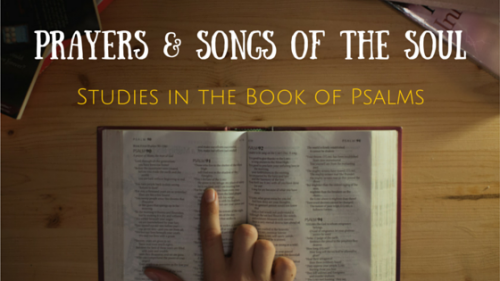Thoughts and words are powerful. They can have a strong positive influence and impact or a negative one. They are rarely neutral.
Countless book, blogs, and workshops tout the powerful force of thoughts and words. This was understood in ancient times long, long before the printed word.
Prayers and pronouncements of blessing are an important form of expression where this is true. The Scriptures are full of examples, especially the Psalms.
Scripture
For the director of music. A psalm of David.
May the Lord answer you in times of trouble. May the God of Jacob protect you. May he send you help from his Temple and support you from Mount Zion. May he remember all your offerings and accept all your sacrifices. Selah
May he give you what you want and make all your plans succeed, and we will shout for joy when you succeed, and we will raise a flag in the name of our God. May the Lord give you all that you ask for. [vss 1-5]
Now I know the Lord helps his appointed king. He answers him from his holy heaven and saves him with his strong right hand. Some trust in chariots, others in horses, but we trust the Lord our God. They are overwhelmed and defeated, but we march forward and win.
Lord, save the king! Answer us when we call for help. [vss 6-8]
(Psalm 20:1-8 NCV) [Context– Psalm 20]
Key phrase— Some trust in chariots, others in horses, but we trust the Lord our God
[bctt tweet="Some trust in chariots, others in horses, but we trust the Lord our God" username="tkbeyond"]
Digging Deeper...
Review the Scriptures above as you answer the following questions
How are thoughts and words expressed in the first half of this psalm? How would you describe the way they're expressed?
What are the six specific blessings spoken in this psalm? How are these blessings also a form of prayer?
What is the basis of confidence that this prayer of blessing will be answered?
Where do many people put their trust? How is trust in the Lord shown to be better?
Reflection...
Prayer is simply communication with God. A conversation of our soul and spirit to a personal, living God. How amazing is that!
This is the beauty of the Psalms. They capture various emotions of the heart and soul in an honest, open expression.
This psalm not only expresses blessings, but is an affirmation of faith. It's a confident confession of trust in God.
Other people put their trust in things with limited strength. King David—a mighty warrior—chose to trust in the Lord who is omnipotent. God's strength is unlimited.
Make it personal...
Read through the Scripture text again as you consider and answer these questions
When you pray, how often do you speak from your heart with confidence?
Do you make a point to pray for the spiritual well-being of others?
How confident are you that God will answer when you pray?
Do you consciously choose to trust in God more than anything else?
Would you like a free study guide for your study of Psalms?




